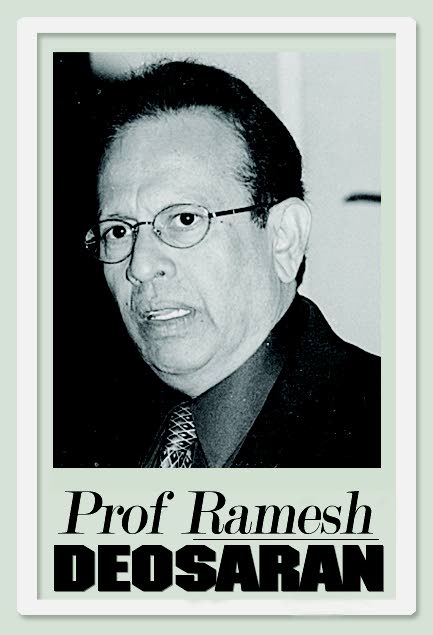Overhaul education?

Overhaul. This is described as “take to pieces to examine; a thorough examination with repairs if necessary.” (Concise Oxford). Three weeks ago, President Paula Mae Weekes called for an overhaul of the education system. On July 11, 2015, then President Anthony Carmona made that call. Archbishop Emeritus Joseph Harris also repeatedly called for this overhaul, several professionals too, major concerns being failures and the deleterious mismatch between the diversity of student abilities and the monopoly of grammar-type examinations.
All said without malice, crossing political boundaries and prodding Education Minister Anthony Garcia to at least lay the groundwork for the work required. The problems germinated over 40 years ago, propelled by the rapid physical expansion of the system. There have been several reviews starting with the 1957 Hamilton Maurice Report, and now ending with the Ministry of Education’s 2018 report emphasising curriculum reform.
Using the education system to create a better society has always been a difficult challenge. A lot of lives depend on it, especially the poor and voiceless. However any “overhaul” should note the limits which external forces impose on the education system. Free education yes, but class-driven private lessons and private schools? The problems we see today were hotly debated 40 years ago with late Dr C V Gocking, for example, emphasising the cognitive limitations of the grammar-centred Common Entrance examination and the consequent student “failures.” UWI colleague Selwyn Ryan did his share. I recall my own contributions, beginning with the 1979 Crisis in Education. (See eg 30 articles in The Deosaran Files: Education, Youth and Society. Vol 3 UWI, 2015,)
As far back as its 1968-83 Education Plan, the ministry asked: “What are we educating for?” The ministry answered: “We are supposed to produce citizens who are intellectually, morally and emotionally fitted to respond adequately and productively to the varied challenges of life in a multi-racial developing country.” In its Education for All National Plan (1993-2003), it promised the same things and more.
Most of the limited success from these objectives are repeatedly found in the “prestige” schools (government-assisted denominational) especially in terms of “intellectual” achievement. As Minister Garcia himself pointed out with particular reference to scholarships, the disparities remain troubling and unresolved. Look at one piece of troubling data. In the 2008 Caribbean Secondary Education Certificate (CSEC) examination, 21 per cent of students from government schools gained five or more passes compared to 62 per cent from government-assisted denominational schools. The proportions for 2012 were 19 per cent for government secondary schools and 64 per cent from government-assisted schools – big, persistent differences. (See Inequality, Crime and Education in Trinidad and Tobago, R. Deosaran, Ian Randle Publishers, 2016, pp 272 for this and related data.)
Education like crime will continue to be volatile platform issues. Calypsonians make mas’ with them. Cro Cro (Winston Rawlins) won the 1990 monarch won with Corruption in Common Entrance. Gypsy (Winston Peters) lamented the educational plight of the Little Black Boy. And Sparrow warned without a good education is “better yuh dead.”
Why so many persistent disparities in academic achievement by social class, gender, district, school type, etc? Why the worrying disparities between schools in character, civility, school violence, delinquency, failure rates, drop-outs, absenteeism and unpunctuality. Check the background of those in Remand Yard, Golden Grove, Port of Spain and Carrera prisons. Sometimes you wonder, who really cares?
When last were the official attendance and punctuality records for teachers checked for accountability? I saw the records from 2009 to 2013 when I was a member of the Teaching Service Commission. The lack of accountability was frightening for a number of schools. This requires overhaul, including the commission.
Teachers, especially in government secondary schools, have repeatedly complained about parents who show little or no interest in their children when teachers send complaints or invite them for consultation. How could this be “overhauled?” Given its systemic rootedness and multi-faceted nature, educational overhaul requires consensus. Last week, the TT Unified Teachers Association declared: “Education system hinders learning.”
The compelling imperative now is for the Ministry of Education to trigger a consensus-driven overhaul pathway with the National Parent Teachers’ Association and TTUTA. Non-partisan involvement of parents and teachers is vital. As President Weekes and Harris warned, the system’s dysfunctions and persistent inequities need serious attention. Time is not on our side.

Comments
"Overhaul education?"